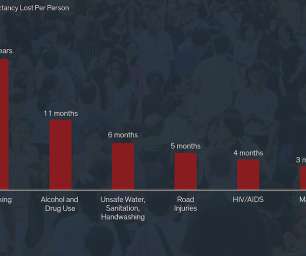International study identifies 14 key measures to reduce methane and black carbon emissions; reduction in projected global mean warming of ~0.5 °C by 2050
Green Car Congress
JANUARY 13, 2012
A study by an international team of researchers, led by Drew Shindell of NASA’s Goddard Institute for Space Studies (GISS) in New York City, has identified 14 measures targeting methane and black carbon (BC) emissions that could reduce projected global mean warming ~0.5°C °F) by 2050, as well as improving human health and agriculture.














Let's personalize your content